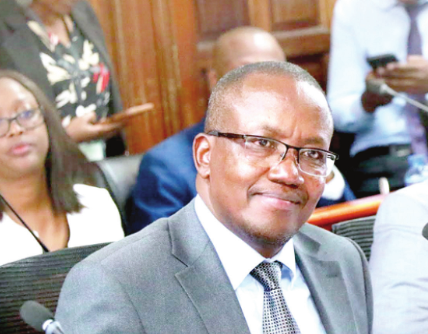Delayed NHIF remittances contributes to patient snub

Failure by several government agencies and other private firms to remit their employees’ statutory contributions to the National Health Insurance Fund (NHIF) has led to hospitals sending away patients with the national health scheme cards.
As a result of the agencies and private employers failing to remit the contributions, NHIF has been unable to meet her obligations such as remitting capitations to hospitals, thus leading to the apparent crisis.
Patients seeking treatment in some government hospitals in counties like Kajiado, Narok, Kitengela, Nyamira and parts of Nakuru, and majority of private facilities are being forced to pay for outpatient services because the hospitals are yet to receive their October to December capitation.
Capitation is money paid back to NHIF accredited hospitals for outpatient services.
In most private hospitals, NHIF beneficiaries are being forced to cough out Sh1,000 for treatment besides being required to pay for services such as surgery where patients pay for theatre fees and cancer care where beneficiaries are made to pay for a consultation fee, laboratory testing fees, and procedure fees for any interventions.
Patients using the Linda Mama Scheme are also being requested to pay a procedure fee for normal delivery and a theatre fee for a Caesarean section. In public hospitals, services paid for by NHIF are said to be unavailable or patients are advised to visit private hospitals.
Comprehensive cover
Some of the hospitals severely affected are those that have signed a comprehensive cover agreement with NHIF, allowing patients to receive treatment without paying a single cent to the national health provider.
NHIF chief executive Elijah Wachira yesterday told the People Daily that NHIF has defaulted on remittance of capitations by almost two months, a situation he said they are working round the clock to address.
“It is a problem that we are well aware of and we are working hard to address it. We are also in talks with the hospitals not to turn away patients as we push those who do not remit their employees’ monthly contributions to do so because without that money, we can’t move,” Wachira said.
He confessed that NHIF is largely struggling to meet her obligations as a result of the defaults.
Other sources confided to the People Daily that the government owes hospitals Sh4.4 billion in capitation.
As part of the strategy to address that crisis, Wachira said the national health insurer has been paying hospitals four times in a month instead of the traditional schedule of twice a month.
Wachira remained optimistic that the crisis could be sorted by the establishment of the Social Health Authority (SHA) that is expected to be operational by March 1.
Affecting service delivery
Early this month, Rural Private Hospitals Association of Kenya Chairperson Brian Lishenga had disclosed that NHIF owes at least 400 hospitals more than Sh15 billion, an issue that he said is affecting service delivery.
Some of the money dates back to 2018. Lishenga said the hospitals had agreed to have patients pay out of their pockets, but were forced to suspend the decision after Health Cabinet Secretary Susan
Nakhumicha promised that the Treasury had released Sh3 billion to hospitals.
But to date, that money is yet to be received.
“The whole issue has become a circus because nobody in the government seems to know what is happening. Despite the promise by the CS, the money has not been paid,” Lishenga told the People Daily last evening.
At the same time, Wachira disclosed that all NHIF comprehensive cover contracts would not be renewed once they expire in the course of the year, as the national insurer prepares to hand over its functions to SHA.
But each government agency would decide on whether to top up funds to acquire services of a private medical insurance to her employees.
According to Wachira, every employee would be required to make the mandatory 2.7 per cent contribution to SHA which would be responsible for provision of comprehensive health provisions.
“The civil servants comprehensive cover is coming to and end in June this year, after which a communication would be made on the way forward,” Wachira disclosed.
Wachira agreed that several government agencies are now migrating their medical insurance services to private firms after NHIF announced the halting of the comprehensive cover following the enactment of SHA.
Kenya Medical Practitioners, Pharmacists and Dentists Union Secretary General Davji Atellah has since written to the government protesting the development.
“All this money that government agencies intend to pay private insurance firms should be used for other purposes in the Universal Health Cover (UHC), Dr Atellah told the People Daily.
According to Dr Atellah the government should reconsider Section 5 of the Transition Schedule that outlaws the enhanced medical cover for civil servants.
SHA establishes the Primary Health Fund, Emergency, Chronic and Critical Illness Fund, and the Social Health Insurance Fund. The Social Health Insurance Act, 2023, provides for the formation of SHA, which will repeal the National Health Insurance Fund Act, 1998.











